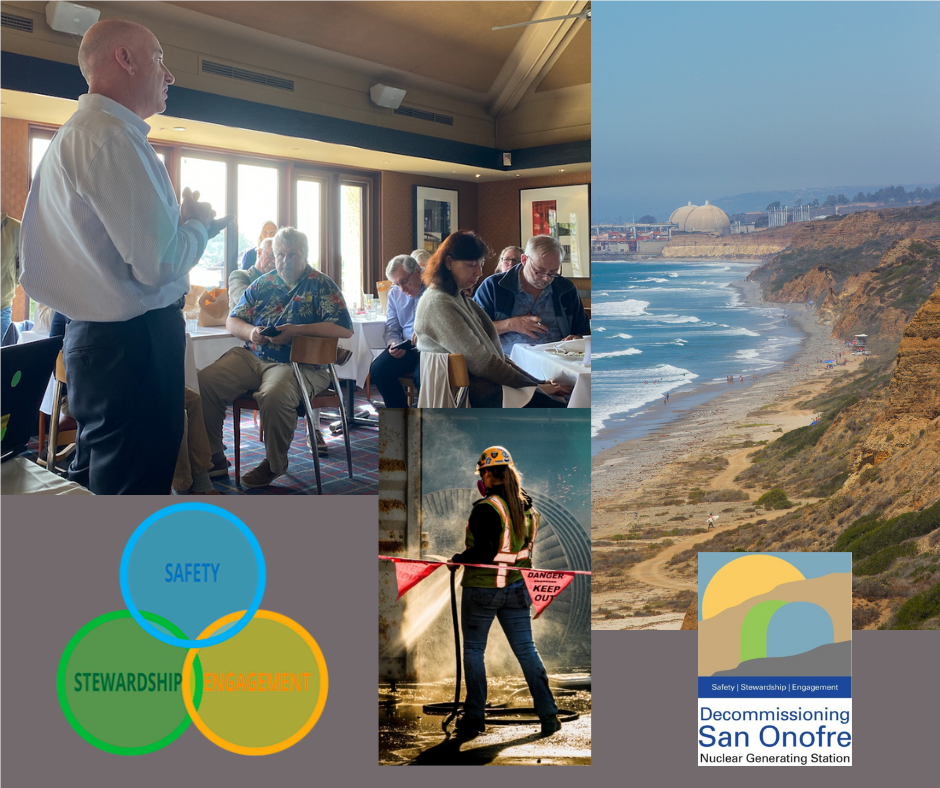
Al Bates (left) speaks about San Onofre Nuclear Generating Station (SONGS) decommissioning, which is governed by principles of Safety, Stewardship and Engagement. Work to dismantle the turbine buildings (center) is going on right now
San Onofre Nuclear Generating Station (SONGS) is a familiar site near the northern border of San Diego county. The plant came online in 1968 and was shut down in 2013 after one of the steam generators failed and was too costly to repair. In 2014, the decommissioning of SONGS began.
Al Bates, the Principal Manager and Nuclear Regulatory Affairs and Technical Advisor to Southern California Edison CNO, visited our club on January 12, 2023 to provide an update on the SONGS decommissioning. All aspects of the decommissioning process are governed by three principles: Safety, Stewardship and Engagement. Safety is the top priority and encompasses nuclear, radiological, industrial and environmental safety. Stewardship has both financial and environmental aspects to ensure that public funds are used responsibly and efficiently and that the activities minimize environmental impacts so that the site is left in the same condition as before the plant was built. Engagement assures transparency and that the public is kept abreast of progress at the site.
Ten years into the 60-year decommissioning period, many of the support buildings have been demolished and work on dismantling the turbine building structures is underway. Much of the debris in these buildings is recyclable steel and nonferrous materials that will be transported away from the site using the on-site railyard that substantially reduces truck traffic on nearby I-5.
Eventually the iconic dome-shaped containment units will be dismantled using a bottom-up approach. Driving by the site, you might think that the domes are sinking, but really they’re effectively “sunsetting” as the deconstruction reduces the dome height by removing material from the bottom of the domes.
All spent fuel will be stored onsite in sealed, stainless steel canisters that are passively cooled in dry cask storage systems. The storage units are seismically rated, resistant to corrosion and rated for more than 100 years. Currently there is no national storage facility, but the canisters can be transported when a site is built.
Bates encouraged community members to keep up to date on the decommissioning process and to be active in efforts to address the storage of spent fuels. You can sign up by visiting www.spentfuelsolutionsnow.com You can also learn more about SONGS decommissioning by visiting their website.